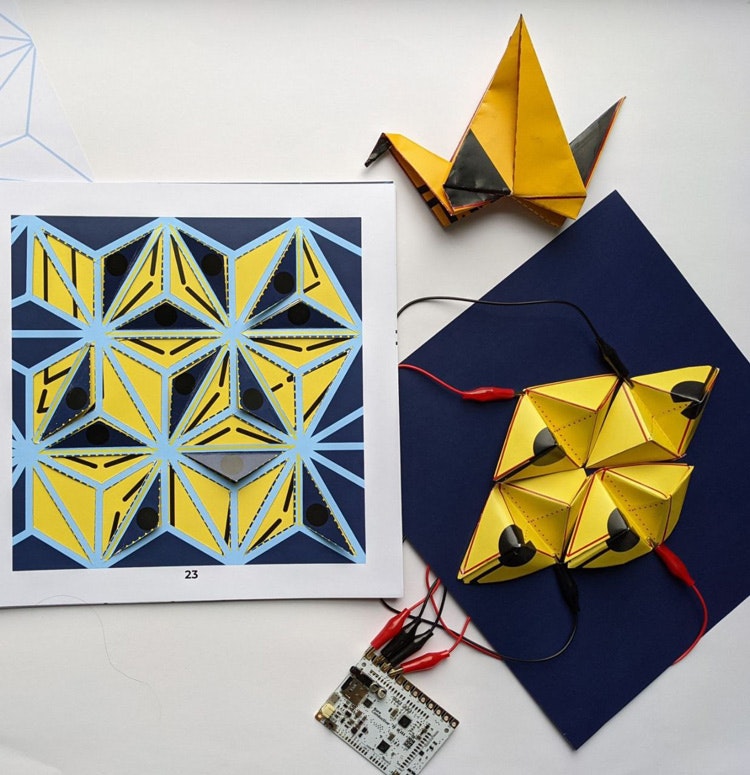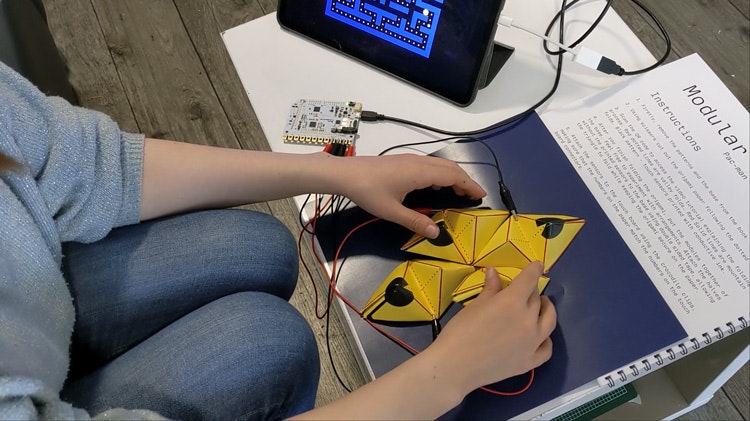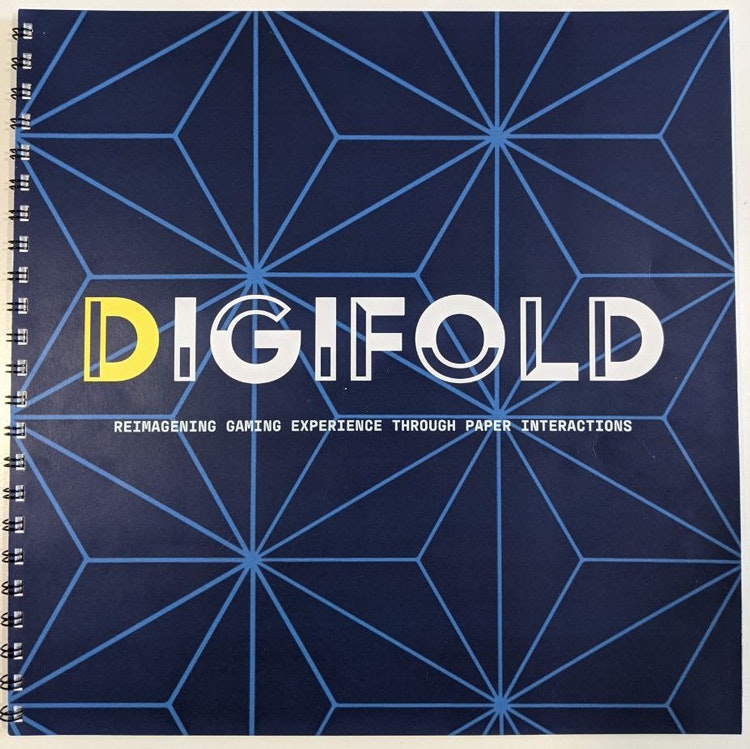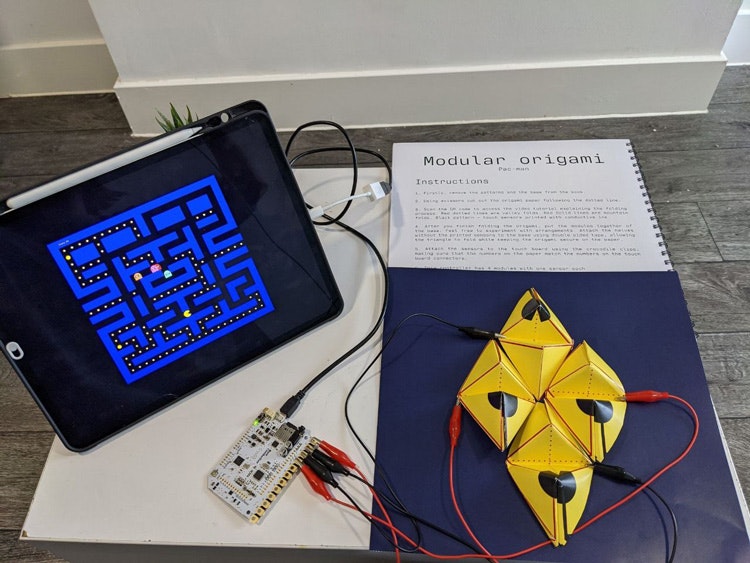Mariia Kharitonova is a 22-year-old product design graduate from the University of Edinburgh. Her final project is Digifold.

Design Week: Can you explain what your final project was about?
Mariia Kharitonova: I created a series of controllers that merge the digital and physical worlds of video games through interactive origami. The project is designed for children and young adults and challenges the typical handheld game controller and screen interactions.
Since the start of the global Covid-19 pandemic, there has been a spike in digital escapism. The time people spend online and in front of the screens increased greatly in the past year. For many months during the lockdown, every aspect of life – work, studies, social life, and entertainment – transferred to being online. On top of that the release of Animal Crossing: New Horizons during the first lockdown provided further opportunities to escape the harsh realities of the pandemic into the digital spaces of video games.
My project aims to help children and young adults stay more grounded while enjoying video games by introducing elements of physical creation into the process. Instead of monotonously pressing buttons and staring at the screens of computers, Digifold allows players to engage in the traditional craft of paper folding to play their favourite games. Digifold is essentially a book that has 5 origami patterns printed with conductive ink. The players can fold their own origami figures and connect them directly to games, turning their creations into interactive game controllers.
Digifold not only allows players to enjoy gaming but also introduces children to traditional craft, thereby helping to develop fine motor skills and support mental concentration.

DW: More generally, what would you say your biggest inspirations are in your design practice?
MK: I am greatly inspired by the traditional art and craft practices of different cultures. I love learning about different communities and their unique creative approaches to art and design. I also get inspiration from films and literature, particularly sci-fi and fantasy.

DW: What would be the ideal job for you, and why?
MK: My degree has opened so many doors and opportunities to explore in my design career. I would love to work in the video game industry and help bring inspiring projects to life.
Video games have so much potential that goes beyond pure entertainment. Games can help us learn new skills, inspire cultures and generations and encourage social and environmental change to make the world a little better and I would love to be a part of this growing industry.

You can view Mariia’s work, as well as her peers’ as part of the Edinburgh College of Art graduate showcase.

- Design disciplines in this article









